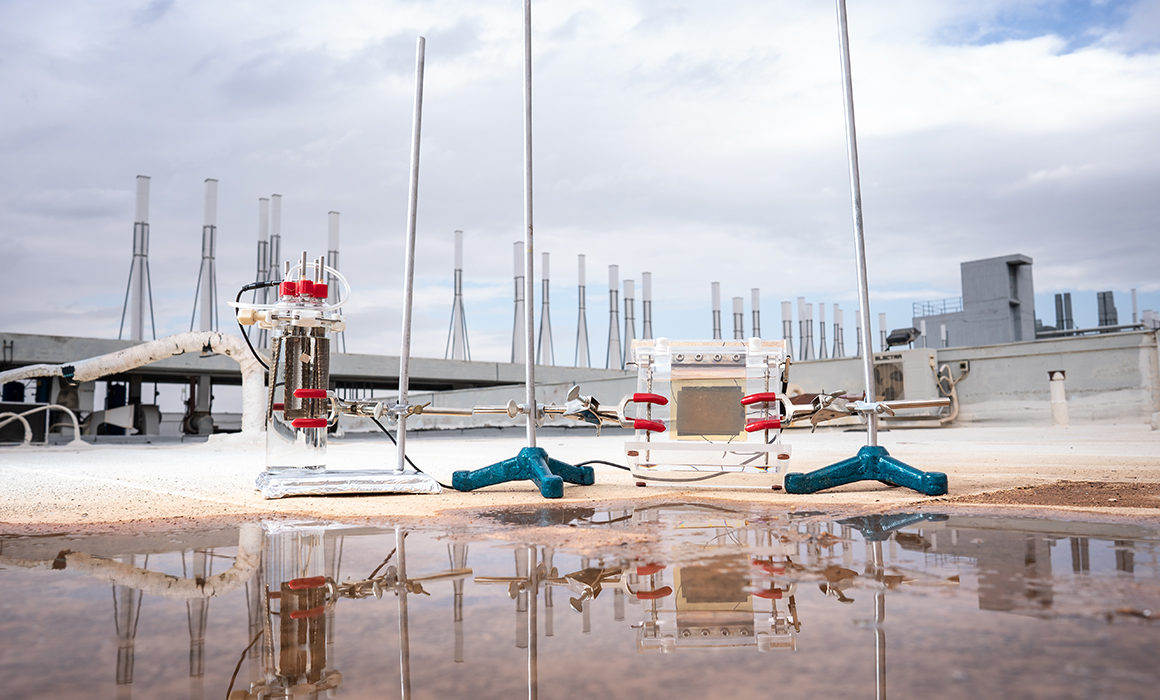The Technion Center for Sustainable Processes and Catalysis will take on a formidable challenge — and has the deep talent to do so.
Laundry stain remover. Penicillin. Stonewashed jeans. Catalysts help manufacture more than 90% of such everyday products. Now this class of compounds is set to tackle one of our biggest existential threats: climate change. And the Technion is responding by launching the Center for Sustainable Processes and Catalysis. It comes not a moment too soon.
The world’s population is projected to reach 8.5 billion by 2030, and Professor Ilan Marek, who is chair of the Catalysis Center and the Sir Michael and Lady Sobell Academic Chair, argues that we need all hands on deck. “We need to [maintain] progress but do it in a different manner,” he said. “We need to preserve our planet.” The Center will serve as an incubator for new fields of catalysis research that can scale easily and benefit humanity.
Catalysts will be game-changers for resolving challenges such as the exponential growth in the consumption of power and natural resources.
Prof. Ilan Marek
Catalysts accelerate chemical reactions without being consumed, so they can be created and reused. Assistant Professor Graham de Ruiter of the Schulich Faculty of Chemistry likens catalysts to a tunnel that cuts through a mountain, connecting two villages on either side. You could travel between the villages by climbing the mountain or by using the tunnel. The catalyst is like the tunnel: It gets you there faster.
Professor Gideon Grader, whose research is rooted in catalysis, is part of the Center’s interdisciplinary team. He will focus on advancing the development of inexpensive and clean hydrogen using water-splitting technology. Prof. Grader helped launch the startup H2Pro, backed by Bill Gates to build the research to a commercial level. He is one of five recipients of the 2020 Eric and Sheila Samson Prime Minister’s Prize for Global Innovation in Smart Mobility and Alternative Fuels. H2Pro was also a winner at the New Energy Challenge competition hosted by Shell.
Professor Ayelet Fishman researches biocatalysts to create plant-based meat and dairy alternatives. She also works on bacteria that devour formaldehyde, a water-polluting toxin found in everyday products including furniture and carpeting.
These projects are just a few of the many related to catalysis at the Technion, which boasts Israel’s largest number of researchers in the field. “Catalysts will be game-changers for resolving challenges such as the exponential growth in the consumption of power and natural resources,” Prof. Marek said.
Our planet’s natural resources will only become more strained in the coming decades. To build a more sustainable world — one that ensures all of humankind has the water, food, and energy needed to survive — the world will ask a lot of the Technion. And the Center is ready to deliver.
Pictured Top / Breakthrough prototype system for efficient and safe production of hydrogen using only solar energy



